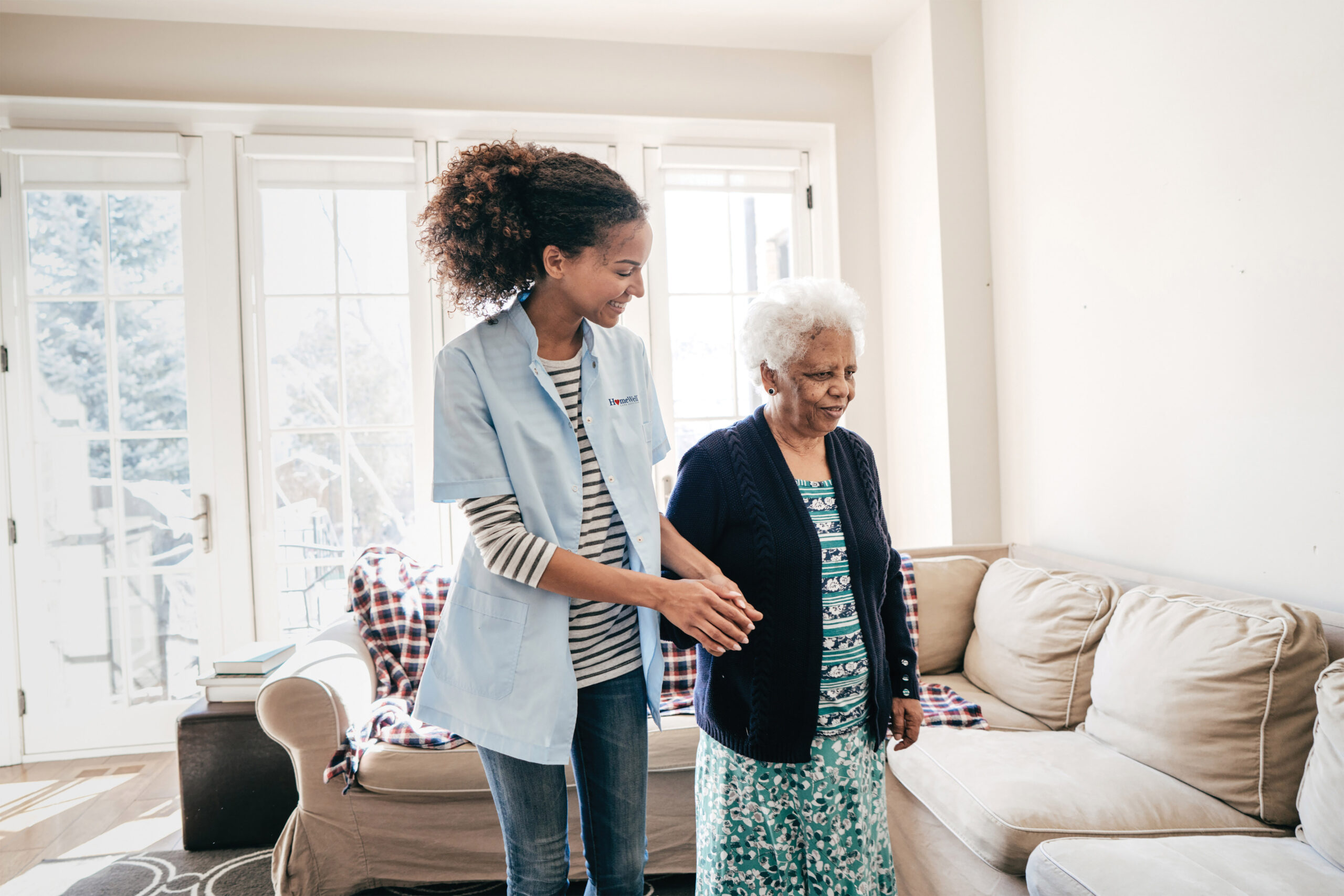Fall Prevention: Safety Tips to Prevent Falls for Seniors
The fear of falling is common among seniors—and for a good reason. From slippery rugs and wet floors to stairs and uneven sidewalks, obstacles are everywhere. As you age, these minor encumbrances turn into safety hazards, increasing the likelihood of a fall.
While a fall results in physical repercussions, the fear of falling can negatively impact your quality of life and keep you from doing what you love. It’s common for seniors to withdraw from performing everyday tasks or enjoying the hobbies that bring them happiness due to their fall risk. In this blog, we’ll provide some quick tips to help prevent falls so you or your loved one can experience peace of mind and a higher quality of life at home.
WHY ARE FALLS SO DANGEROUS FOR SENIORS?
The same falls you shrugged off when you were younger may now leave you feeling like you’ve fallen down an entire flight of stairs. So why is that the case?
Research tells us that frailty is one of the leading causes of increased falls, hospitalization, and mortality. Because older adults experience muscle loss as they age, they become more susceptible to severe injuries. And one fall for a senior can nearly double the chances of it happening again. Since most older adults don’t tell their doctors about their falls until they’ve suffered a severe injury, it’s essential to get ahead of the situation whenever possible.
COMMON RISK FACTORS FOR FALLS
One of the many reasons falls are so dangerous is that seniors often don’t realize they’re at a higher risk of getting injured from a fall until it’s too late. Identifying and modifying the common risk factors ahead of time can significantly reduce the chances of falls in the elderly. The risk factors considered to have a high association with falls—which can be modified—include:
- Medication usage
- Weakened muscles
- Visual impairment
- Fear of falling
- Physical inactivity
- Social isolation

HOW TO HELP PREVENT FALLS
Not only are poor health conditions a severe risk factor for falling, but there are also some items in your home that could lead you to tumble. Take control of your wellbeing by safeguarding yourself with these improvements:
- EXERCISE REGULARLY. Exercises focusing primarily on balance and strength training, such as aerobics, can reduce your fall risk. It’s important to talk to your doctor before starting exercises, especially if you have a history of falling or experience instability while walking.
- CONSULT YOUR HEALTH CARE PROVIDER. Talk to your doctor if you start experiencing joint issues, dizziness, or other health-related issues that could potentially put you at risk for a fall. It’s vital that you mention any signs of weakness or stumbling.
- KEEP YOUR HOME SAFE. Poor lighting, clutter, and a lack of handrails can all increase your chances of tripping or taking a tumble. Keep your pathways clear of obstacles, use handrails on stairs, install support rails in the bathroom if possible and ensure adequate lighting throughout your home to see and avoid fall hazards.
- KEEP COMMONLY USED ITEMS IN EASY-TO-REACH PLACES. Anything you use regularly should be stored in an easily accessible location. Bending over, stooping, and reaching can cause seniors to lose balance and feel dizzy, oftentimes leading to a fall.
- CHECK YOUR CLOTHING. If you’re at risk of falling, you may want to consider making some adjustments to your everyday wardrobe. Wear shoes with slip-resistant soles and make sure they fit properly. Also, hem your pants cuffs and dress so they’re not too long to avoid tripping over them.
- SCHEDULE A FALL RISK ASSESSMENT. If you’re unsure whether you are at risk of falling, set up a fall risk assessment. A professional will evaluate your home environment, health, and daily habits. They can help identify and remove any hazardous situations to reduce your risk of falling, creating safety and peace of mind.
If you fear you or a loved one may be at high risk of experiencing a fall, ask about our SureStep Fall Prevention Program. We can help you safely navigate your home and strengthen your sense of security so you can continue to enjoy your independence.
To continue reading helpful ways to prevent falls, download HomeWell’s Trusted Tips for Fall Prevention.